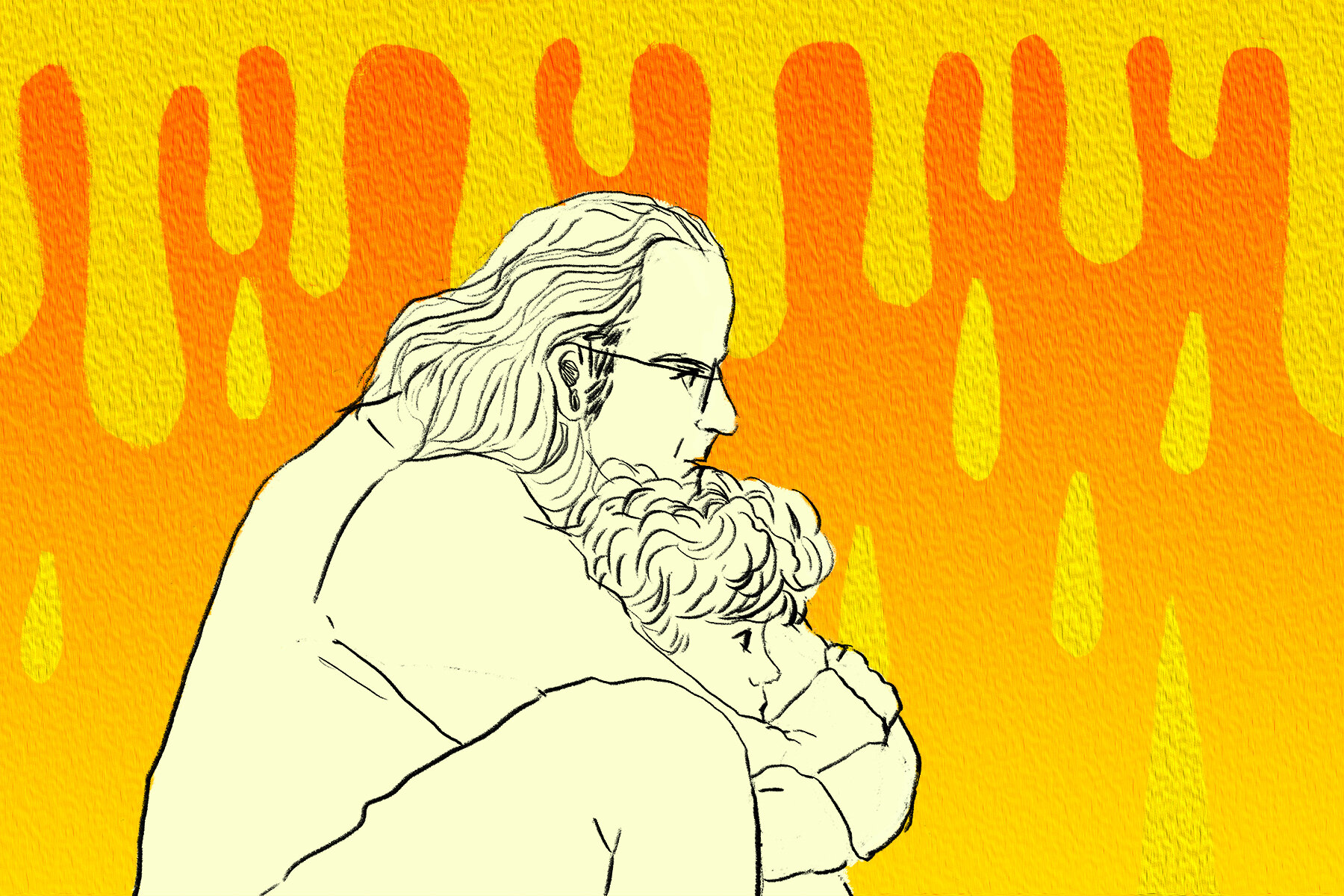“Honey Boy” portrays a young Shia LaBeouf’s struggles with mental health and the traumatic relationship with his father throughout his early career. LaBeouf plays his own father in the movie, which the actor wrote himself as a form of exposure therapy while in rehab for alcoholism.
“Honey Boy” jumps between two timelines: one that follows the story of Otis Lort — who personifies LaBeouf in the film — a young adult actor in rehab struggling to find reconciliation with his father, and a second timeline that uses flashback scenes, or memories, to describe Otis’ childhood.
Otis’ relationship with his father is turbulent, to say the least. His father, James Lort, was a former rodeo clown and a former alcoholic who attends Alcoholics Anonymous meetings. James is also a sex offender and has since divorced Otis’ mother. The Lorts live in a dingy motel supported by Otis’ acting career.
While Otis does not see his mother frequently, he does call her to see if she could accompany him to Canada where he’s been cast in a movie. The call results in a vicious screaming match between the parents — which Otis has to relay to each of them — and it’s also when viewers find out that Otis’ mother had to jump out of a moving car to avoid being raped by James.
James is an unpredictable and inconsistent parent. He will joke around with his son, play games and tell him he supports him: “I’m your cheerleader, honey boy. You trust me?” On the flip side, James also lashes out at him, pushes Otis away when he seeks closeness and projects his emotions about his personal failures onto his son, whom he works for.
At the pinnacle of their dysfunctional relationship, Otis confronts James about needing to be a better father; in his fury, James hits his son twice before leaving to do drugs at a strip club. He is irresponsible, he is insecure and he is abusive.
The movie is a complex, well-balanced and intriguing dive into mental health and its mutual impacts on a child-parent relationship.
Flash forward to the present where singer-songwriter and actress FKA twigs, born Tahliah Debrett Barnett, recently sued LaBeouf in December of 2020. Barnett played the character Shy Girl in “Honey Boy,” which is where she first met LaBeouf.
As per The New York Times, the lawsuit states, “… Mr. LaBeouf knowingly gave Ms. Barnett a sexually transmitted disease. It accuses him of ‘relentless abuse,’ including sexual battery, assault and infliction of emotional distress.”
“What I went through with Shia was the worst thing I’ve ever been through in the whole of my life,” Barnett told the Times.
The lawsuit also includes allegations from stylist Karolyn Pho who dated LaBeouf from 2010 to 2011. The allegations attest that LaBeouf “inflicted physical and emotional abuse, ‘fueled by his jealous, impulsive and irrational ways.’”
After the lawsuit, musician Sia came forward to support the pair, revealing her former relationship with the actor in a tweet: “I too have been hurt emotionally by Shia, a pathological liar, who conned me into an adulterous relationship claiming to be single. I believe he’s very sick and have compassion for him AND his victims. Just know, if you love yourself- stay safe, stay away.”
As for the lawsuit, Barnett plans to donate any monetary damages to domestic violence charities.
Returning to LaBeouf’s recent autobiographical drama, the lawsuit and allegations almost make the story feel more significant overall. The movie certainly is not a redemption story for LaBeouf’s history of allegations or the lawsuit that followed the filming of “Honey Boy.” Simply, nothing can excuse such violent, manipulative and abusive behavior.
However, it does provide a microscope into a cycle of violence and the case of LaBeouf is perhaps evidence supporting a theory of a psychological phenomenon: the intergenerational transmission of violence.
Intergenerational transmission refers to the passing down of traits, behaviors, attitudes and practices from parent to child that are learned, not genetically inherited. The idea can be applied to a number of categories: parenting styles, trauma and violence, to name a few.
The idea of intergenerational transmission comes from the social learning theory of psychology that emphasizes the effects of environmental factors and observing other people on individual understanding and behavior.
Basically, children who witness violence between their parents or experience it themselves learn that it is an appropriate response to conflict, particularly in intimate relationships. As adults, these children may adopt that maladaptive behavior or find themselves in similarly abusive relationships because they learned that such aggression is acceptable in relationships and it has been ingrained or even normalized in their understanding.
A 2009 study on the intergenerational transmission of violence explores the validity of the theory in explaining the link between interparental aggression in the family of origin and intimate partner violence in subsequent intimate relationships, meaning conflict between parents could result in a child inheriting violent tendencies in their future relationships.
The results of the study suggested that there is a strong association between intimate partner violence of emerging adults with witnessing their parents model violence throughout their childhood.
Research from the Crime Victims’ Institute echoes their findings. While the studies showed a variety of factors involved with psychological and physical violence, it concluded that “family-of-origin factors may contribute to our understanding of both perpetration and victimization in intimate relationships.”
That being said, the cycle of abuse is not inevitable; it can and should be broken. What is learned can be unlearned, as challenging as that may be. And in the case of LaBeouf and others similar to him, considering the transmission theory is not an excuse to treat his behavior with any less gravity than it deserves. His actions are just as egregious and should be regarded as such even with the understanding of his maladaptive behavior.
The point is this: “Honey Boy” provides insight into LaBeouf’s childhood, and in order to prevent more episodes of violence, it’s important to both know where that behavior comes from and ensure that it does not persist.

















